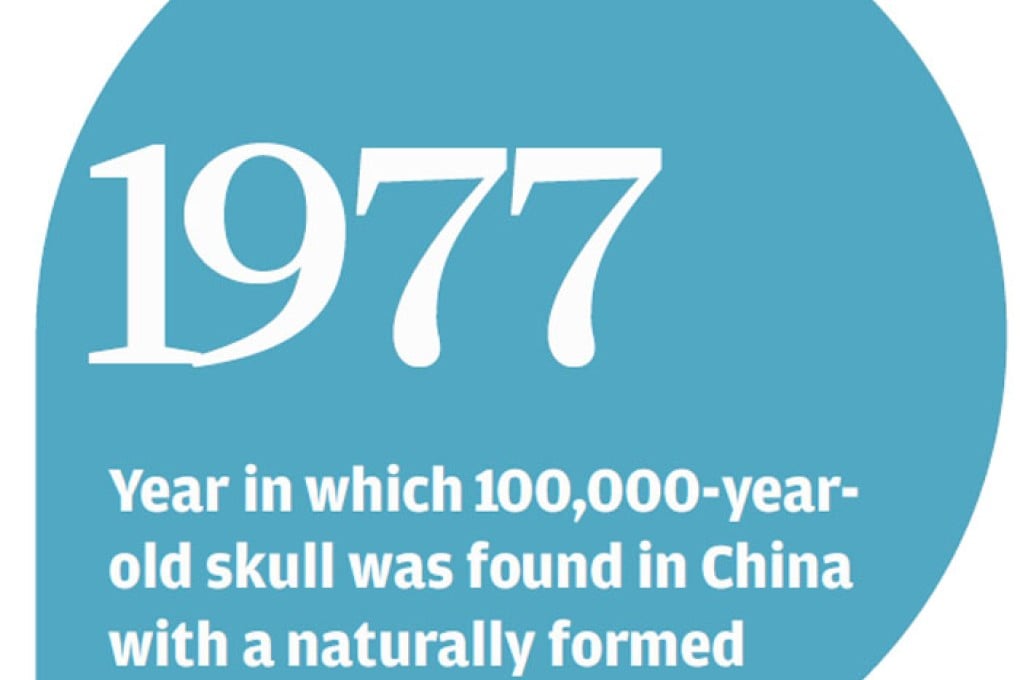
Some medical ailments considered very rare today may have been much more common among early humans in China more than 100,000 years ago - so common that they may have contributed to their extinction and replacement by modern Chinese, according to a study by Chinese paleoanthropologists.

The condition, called enlarged parietal foramina, was hereditary. It could cause serious headaches, epilepsy and even cognitive impairment. The 100,000-year-old fragmented skull, likely from an adult, was found in 1977 at a dig site in Yangyuan county, Hebei . Thorough tests, including X-rays, were administered on the hole to rule out the possibility of a head injury.
Today, the condition is rare, with about one out of more than 200,000 people having such a hole in their head, according to Dr Wu Xiujie , the paper's main author. "Some experienced doctors in large hospitals were shocked when I showed them the CT scans," she said. "They had not seen anything like this in their career."
If early humans were as healthy as people today, the probability of finding such a hole in a fossilised skull would be virtually zero, Wu said. Few of the remains of the early humans who lived on the planet became fossils. Among those fossils, a scant few have been found. And the remains of only about two dozen individuals included intact rear skulls.
"What is rare today may have been common among early humans," Wu said.
